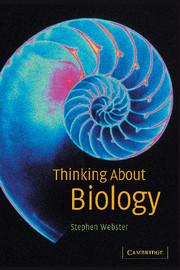6 - Making sense of genes
Published online by Cambridge University Press: 24 May 2010
Summary
The human genome underlies the fundamental unity of all members of the human family, as well as the recognition of their inherent dignity and diversity. In a symbolic sense, it is the heritage of humanity.
Universal Declaration on the Human Genome and Human Rights, 1997, Article 1.An introduction to the Human Genome Project
This chapter is about the Human Genome Project (or HGP), biology's best funded, and best publicised, research effort. It was launched in 1990, and reached a conclusion in 2001, when provisional results were announced. During the intervening 11-year period the science of human genetics was seldom out of the headlines. The high profile of genetics relied on a stream of announcements linking genes to diseases, or even to behavioural characteristics. Not only was it commonplace to hear discussions about the gene for breast cancer, cystic fibrosis or Huntington's disease, there were also claims about the existence of genes for homosexuality, alcoholism, intelligence and aggression.
The Human Genome Project has two fundamental aims: the first is to make a map of every human chromosome, with each gene properly positioned and identified; the second task is to sequence the genome, that is to list in correct order the three billion base pairs that form the linear nucleotide structure of the chromosomes. The technical demands of those tasks do not form the focus of this chapter. Instead I am interested in exploring the way that the project has become so significant a feature of the biological landscape.
- Type
- Chapter
- Information
- Thinking about Biology , pp. 163 - 186Publisher: Cambridge University PressPrint publication year: 2003



